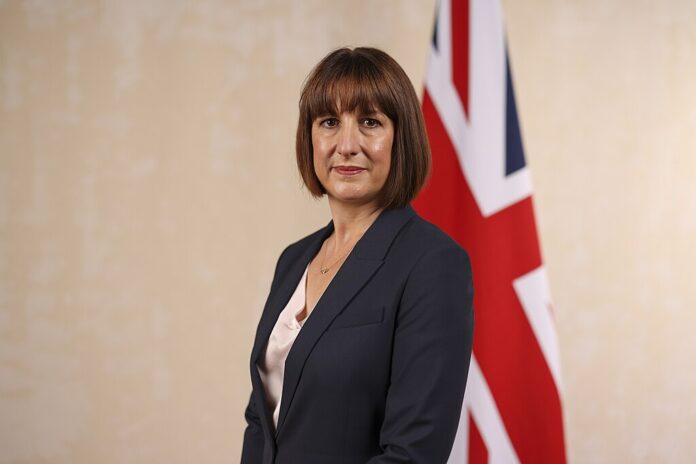Chancellor will tell European leaders that strengthening economic relations post-Brexit can boost growth, despite political opposition
Chancellor Rachel Reeves will deliver a significant address to European finance leaders on Monday, urging closer ties between the UK and the EU as a way to foster economic growth. Speaking at the Eurogroup finance ministers meeting in Brussels, Reeves will emphasise that breaking down trade barriers and improving market access for businesses on both sides will lead to mutual economic benefits.
In her speech, which marks the first address by a British chancellor to the Eurogroup since Brexit, Reeves will call for a “mature, business-like relationship” with the EU, underscoring that the last few years of “division and chaos” should not define future relations. While Labour has firmly ruled out rejoining the EU, Reeves will highlight the party’s commitment to deepening ties with the bloc, believing that closer economic cooperation will boost the UK’s growth prospects.
“I believe that a closer economic relationship between the UK and the EU is not a zero-sum game. It’s about improving both our growth prospects,” Reeves is expected to say. Her remarks come amid rising calls from business groups for more seamless trade between the UK and the EU. The British Chambers of Commerce (BCC) recently warned that UK firms are struggling under the weight of increased regulatory burdens and red tape following Brexit.
Embed from Getty ImagesDespite these positive proposals, the Conservatives have criticised Labour’s approach. Shadow Business Secretary Andrew Griffith suggested that Reeves should focus on securing a US-UK trade deal rather than attempting to rekindle ties with the EU. “If Reeves is interested in growth, she should tell the Prime Minister to talk to President-elect Trump about getting a US-UK trade deal done, not trying to take Britain backwards into the slow growth EU,” Griffith stated.
Reeves’ speech also comes as the Bank of England Governor, Andrew Bailey, has urged for a rebuilding of UK-EU relations. Bailey, who typically refrains from commenting on political matters due to the Bank’s independence, recently acknowledged that the impact of Brexit on trade has been more severe on goods than services. While exports of goods such as food and farming have been hit hard by new trade barriers, services, including banking, have performed better than expected.
Liberal Democrat Treasury spokesperson Daisy Cooper echoed criticism of the Conservative government’s handling of Brexit, calling it a “disaster” for the economy. She pointed to the struggles faced by small businesses, farmers, and fishers, all of whom have been caught up in Brexit-related red tape.
As Reeves makes her case for deeper UK-EU economic integration, the debate continues over the best path for the UK’s future trade relationships. With business leaders pressing for reform and the government under pressure to manage the economic fallout from Brexit, the Labour Party’s push for closer ties with the EU represents a significant shift in the post-Brexit landscape.
THE GUARDIAN
In her inaugural address to eurozone finance ministers since 2020, UK Chancellor Rachel Reeves has outlined a significant shift in the government’s approach to its post-Brexit relationship with the European Union. Reeves highlighted the need to move beyond the “division and chaos” that characterised the previous administration’s handling of EU relations. She proposed a “business-like” reset, with a primary focus on improving trade, fostering growth, and addressing key shared challenges such as the ongoing war in Ukraine and the pursuit of economic competitiveness through free trade.
Reeves emphasized that this new strategy would be rooted in mutual respect and pragmatism, aiming to strengthen bilateral economic ties. She underscored the importance of removing trade barriers to enhance investment opportunities and facilitate market access. Despite existing tensions, particularly regarding fishing rights and border controls, Reeves positioned the reset as an opportunity to realise the full economic potential of UK-EU relations, suggesting that closer collaboration would be mutually beneficial rather than a zero-sum game.
However, some political figures have expressed concerns, particularly regarding the potential trade-offs in negotiations. Andrew Griffith, Shadow Secretary of State for Business and Trade, suggested that Labour should focus on securing a US-UK trade deal to bolster growth, questioning the efficacy of prioritising EU relations. Furthermore, EU officials, such as Sandro Gozi, have acknowledged the shift in Labour’s tone but have called for clearer specifications on what the reset would entail, particularly regarding the UK’s long-term objectives in this renewed partnership.
POLITICO
Rachel Reeves’ upcoming visit to Brussels marks a significant moment in the UK’s attempt to reset its post-Brexit relationship with the European Union. After five years of tense relations following Brexit, and just five months into Labour’s return to power, Reeves will find EU finance ministers receptive to the idea of rebuilding bridges. The timing is advantageous, with the EU’s largest economies grappling with political turmoil, and global uncertainties, including Donald Trump’s remarks about the chaotic state of world affairs, adding urgency to the need for stable alliances. Her visit comes as a breath of fresh air for a region seeking stability, offering the UK a chance to align itself more closely with Europe’s economic interests and future cooperation.
